Young farmers losing route into industry, says Plaid Cymru
- Published
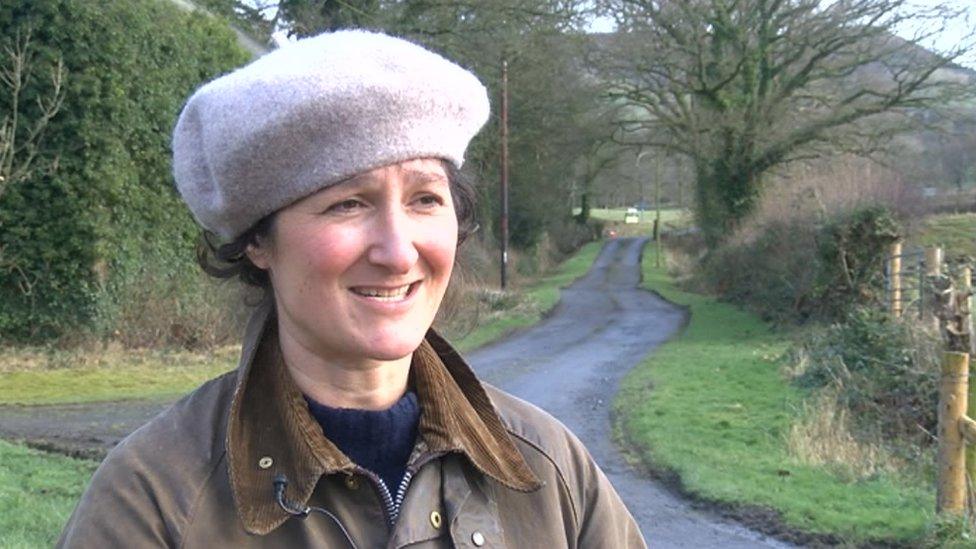
Jessie Buchanan is campaigning to buy a Pembrokeshire farm for the local community
Young farmers are losing one of their few routes into the industry, Plaid Cymru has warned.
Land held by local authorities has reduced by 10% in eight years, analysis of Welsh Government figures shows.
For more than a century, councils have rented agricultural land to new and young farmers, which provides a "step on the ladder".
Councils said they face "acute financial pressures" and the low-price sales are only a "last resort".
Plaid Cymru assembly member Llyr Gruffydd said rural communities would be left with a "gaping hole" if sales continue at the same rate.
"This is one of the very few routes that young people and new farmers have into the industry," he said.
Council farms are agricultural units owned by local authorities which are rented out to farmers. They have been a way for young people to enter the farming industry since 1908 to address a decline in the number of farms.
The farms are supported by law, for example the Agriculture Act states local authorities should "make it their general aim to provide opportunities for persons to be farmers on their own account by letting holdings".
Official figures say there are now just 963 local authority farms - 430 with houses or buildings - in Wales.
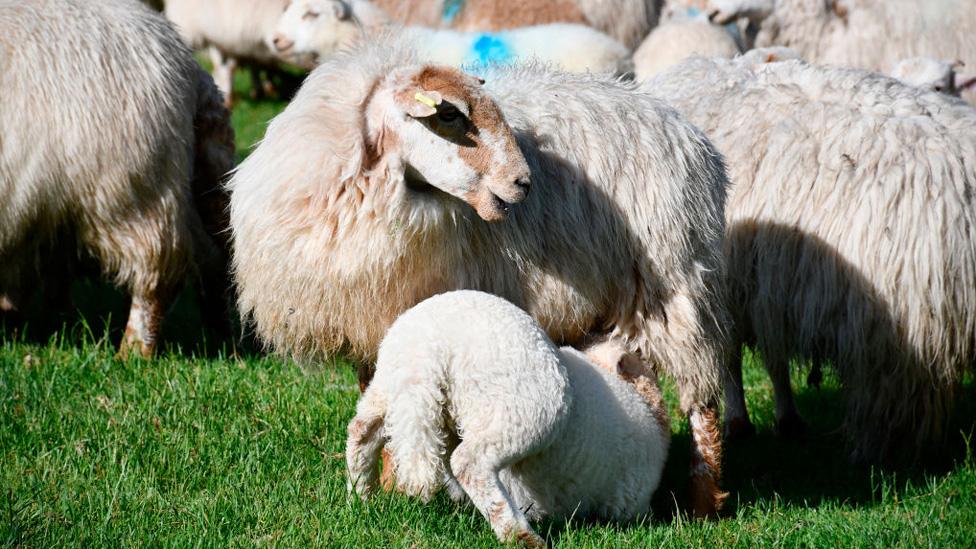
Councils say they recognise the benefits of their farms and are trying to "hold the line"
Denbighshire, Flintshire, Anglesey, Merthyr Tydfil, Monmouthshire, Powys and Wrexham sold 184 hectares between them in 2016-17, which raised £4.2m.
Trecadwgan Farm, near Solva, was put up for public auction last year by Pembrokeshire council and since then locals have raised tens of thousands of pounds to bid for it and make it a community farm.
Campaign group chair Jessie Buchanan wants to avoid "ending the life of a farm that has been there for 800 years".
"The vision for Trecadwgan farm that we have put forward is something that will create employment and offer scope for wellbeing within the community," she said.

'Step on the ladder'
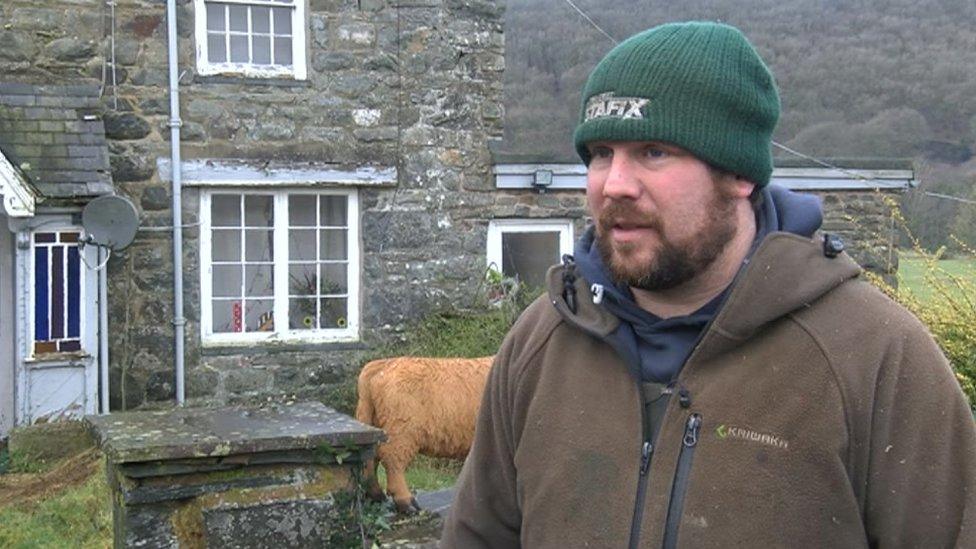
Phil Dancer says he has been lucky to be able to stay in the area
Phil Dancer, 32, is a first generation sheep famer who recently secured a 12-year tenancy on a council farm outside Machynlleth, Powys.
"When we came for the viewing day [at my farm], there must have been 20 [to] 30 applicants walking about the place," he said.
"I consider myself very lucky to have had it and to be able to stay in the area, which means a lot to me.
"It's a big difference for me now. I have the security of 12 years. I can invest a bit into the ground, which will in turn improve my livestock.
"At the end of the day it's a step on the ladder and my plan is to move up the ladder. It will make the next step easier hopefully."

A Welsh Local Government Association (WLGA) spokesperson said: "Inevitably in the face of acute financial pressures, councils have had to consider selling off some of their farms and some have indeed done so.
"However, this is a last resort and local authorities are trying to hold the line, recognising their long term benefits. "
The WLGA said a rural forum, made up of nine local authorities, is working to develop a 'rural deal' to "complement the more urban focussed city and growth deals".
Local authority farms are an "important asset" to the agricultural industry, the Welsh Government said.
"Whilst the management of these farms is ultimately a matter for Welsh local authorities, we are aware some are considering the rationalisation of their estate," a spokesperson said.
"We are committed to ensure opportunities exist for those wishing to make agriculture a career."
Politics Wales is on BBC One Wales at 10:00 GMT on Sunday, 26 January
- Published23 January 2020
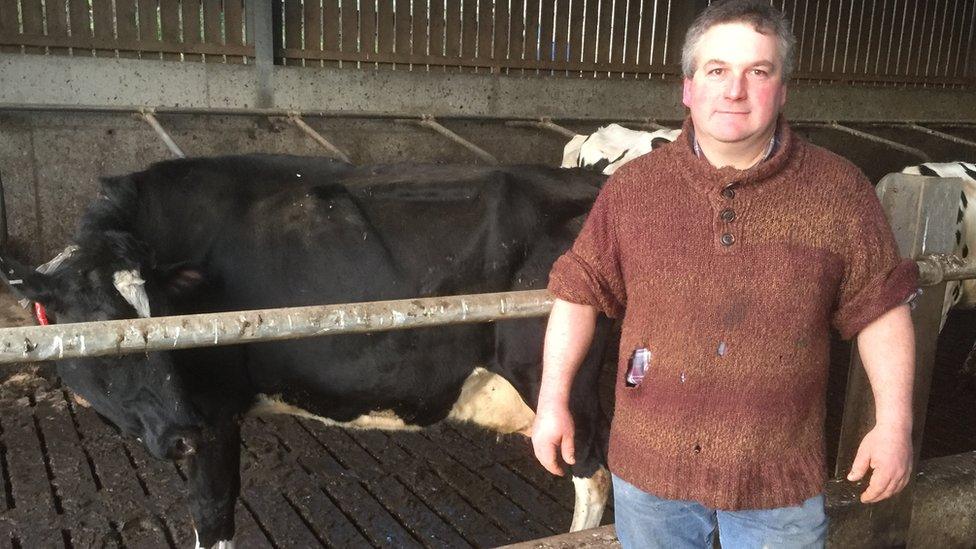
- Published22 January 2020
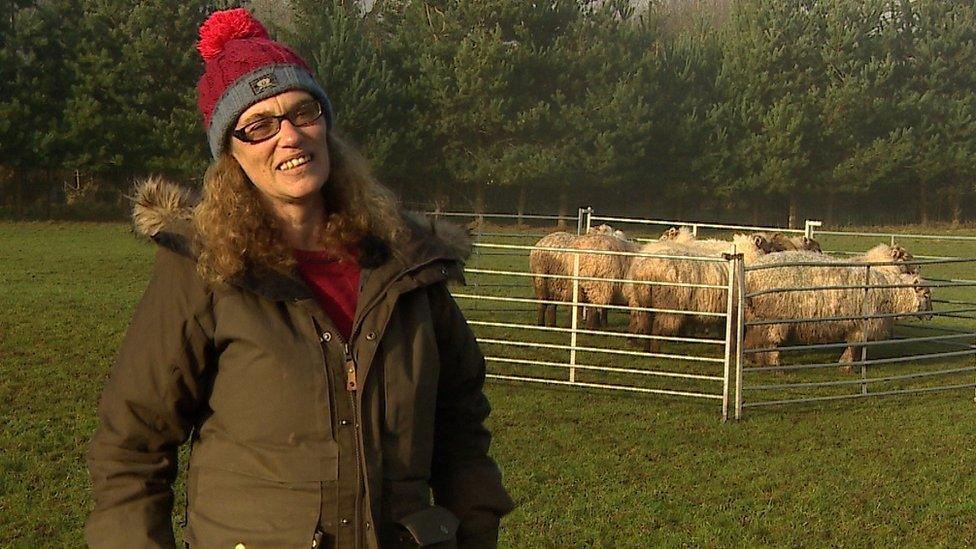
- Published21 January 2020

- Published14 January 2020
